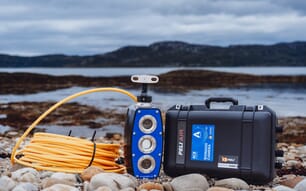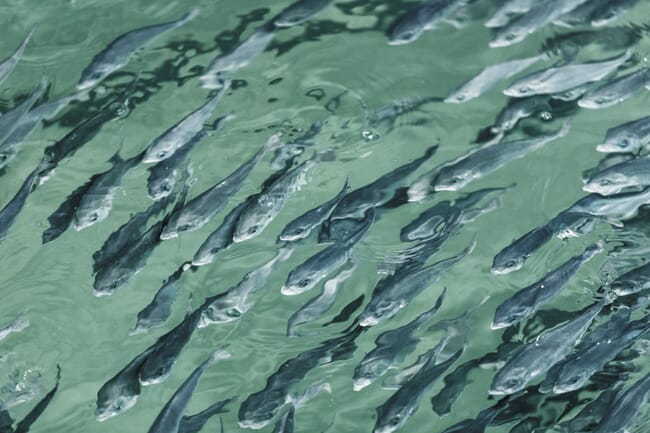
Speaking at The Economist’s 9th World Ocean Summit, Maiman delivered some valuable insights on how the Kingfish Company had, since being established in 2015, managed to build a successful business with strong sustainability credentials and the capacity to produce up to 12,000 tonnes of yellowtail kingfish.
“Our business case would be to focus on high value import-dependent species, to produce locally and sustainably in Europe with a second site in development in Maine, for the US market,” he explained.
However, after describing the company’s evolution from an ambitious startup to a more mature scale-up, Maiman warned that a strong sustainability message is by no means sufficient to guarantee financial viability, especially for those wanting to go beyond a very niche market.
“I think the answer generally is ‘yes’, but it’s not a free pass. Only focusing on sustainability and taking head on established industries and delivering the same product expecting for a sustainability premium may find a receptive but small, well-meaning market. In our view, sustainable practices – in order to be financially viable – need to be put into a well-developed and executed business case that will essentially solve a problem and deliver a compelling business proposition to the consumer,” he explained.
The Kingfish Company targets sales of fresh fish to Michelin-starred restaurants and high-end retailers, such as Wholefoods – initially serving the European market from their RAS in the Netherlands. Given the success of this first facility they are now looking to follow a similar strategy in North America.
“What is the problem we aim to solve? First we focus on import-dependant markets – in our case Europe now and the US in development. Both are markets with substantial purchasing power, and significantly import-dependant in seafood. That is the first way of attempting to utilise and take advantage of the technology that we’ve deployed on site,” he noted.
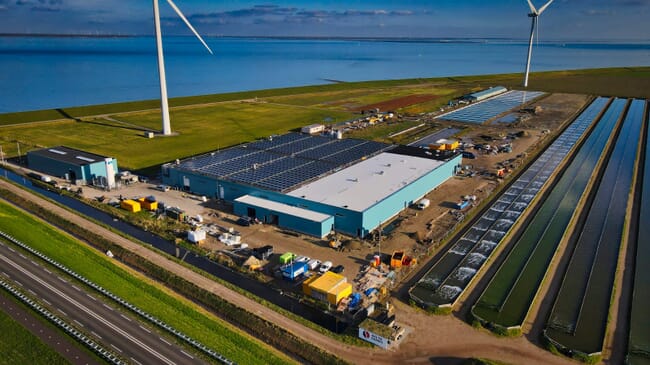
Maiman also pointed out the shortage of good quality wild-caught fish available – an issue that they are also using to their advantage.
“The second bottleneck or challenge we find in seafood is that there simply aren’t enough fish in the sea,” he explained, pointing to the stagnation of wild-capture fisheries and the challenges facing the growth of the conventional aquaculture sector – not least in Western markets, where new licences are hard to come by.
Maiman added that sustainability has never been higher on the seafood agenda, thus making RAS-produce fish increasingly appealing.
“Consumer awareness, we believe is at an all-time high as far as sustainability practices are expected,” he argued.
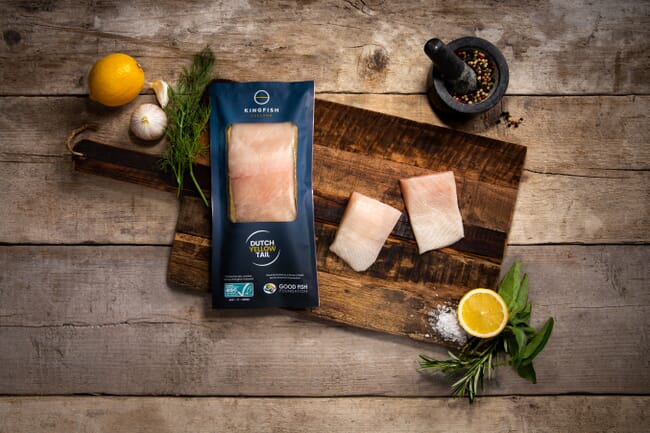
Is RAS genuinely sustainable?
The sustainability of RAS facilities is often the subject of intense debate but, according to Maiman, the Kingfish Company has succeeded in this respect – hence its endorsement by the likes of the Aquaculture Stewardship Council (ASC).
He outlined that this was due to factors including the use of 100 percent renewable energy, the minimal water use required in RAS (which is helped further as Kingfish Zeeland only uses seawater, which is less scarce than freshwater), the lack of medication needed in these biosecure systems and the ability to collect and recycle all waste. He also pointed to the company’s focus on supplying local markets, thereby minimising the carbon footprint, compared to kingfish imported from Japan or Australia, while also allowing for timely supplies of quality fresh fish, thus reducing food waste.
However, he also noted that getting the basics right was essential before scaling up the project.
“Disruptive sustainable practices, to achieve economical viability, have to start with a proven technology and that is where we spent the first few years – working on a robust and reliable system that supports animal welfare and optimal conditions,” he explained.
Since then, he reflected, the successful development of the system has allowed the company “to move from startup to a scale up and significantly increase volumes”.
Choice of species
According to Maiman, selecting the right species has been an additional factor in the Kingfish Company’s success.
“Sustainable technology also requires a desirable product. If you put the same product out to market or a slightly less desirable one and tout sustainability, we found that is often not enough. In our case we focused on the yellowtail kingfish, this is a fish with deep familiarity in both Italian and Japanese cuisine for different methods of preparation and we found that the sustainable claims are starting to be expected, it’s almost a prerequisite,” he noted.
However, he added that it had to measure up to other options in terms of taste too.
“We must be able to put ourselves to the challenge of a blind taste test as well. The product itself has to be compelling,” Maiman explained.
As for price, he claimed that they were able to be competitive by selling locally and meeting stringent customer demands – saying that the Kingfish Company are able to provide a specific, high-quality product at times and in volumes that the customers require, thereby eliminating concerns over waste or shortages.
As a result, he concluded that “sustainable practices indeed can be financially viable”, but only if the product and production technology match the market.
“In our view, in RAS specifically, competing head on for the same product with established incumbent sector leaders with other technologies maybe challenging. While, on the other hand, focusing on the unique advantages of the technology you operate with and maximising the use of that to enable a complete proposition to the consumer at a competitive price, with the sustainable addition seem to be an overall far more compelling proposition and a solid business case,” he noted.
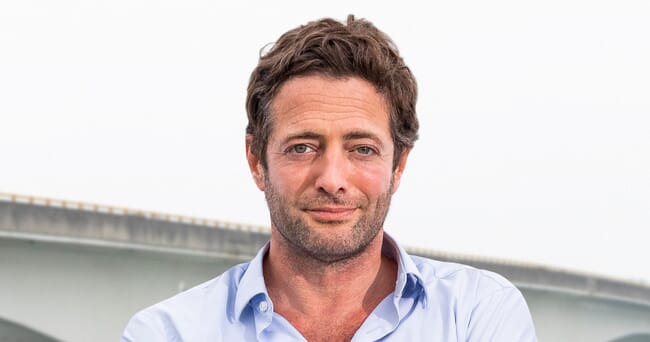
Looking ahead
While the Kingfish Company is in the process of ramping up production in the Netherlands and building an 8,000-tonne capacity kingfish farm in Maine, Maiman hinted that they might one day look towards farming species beyond Seriola lalandi.
“We often call the yellowtail kingfish internally our Model S, essentially borrowing a page from the Tesla playbook, as it’s a high value species that performs well in our system and due to its value allows us the comfort of operating relatively expensive technologies.
“Our goal is to continue to look… to not necessarily compete head on with industries that have become very efficient at doing what they do, but to find a specific business case in which we have a unique advantage and are able to utilise this unique advantage and bring to market a product that answers the critical concerns of sustainability, while still being supportive of a product that consumers want,” he concluded.

